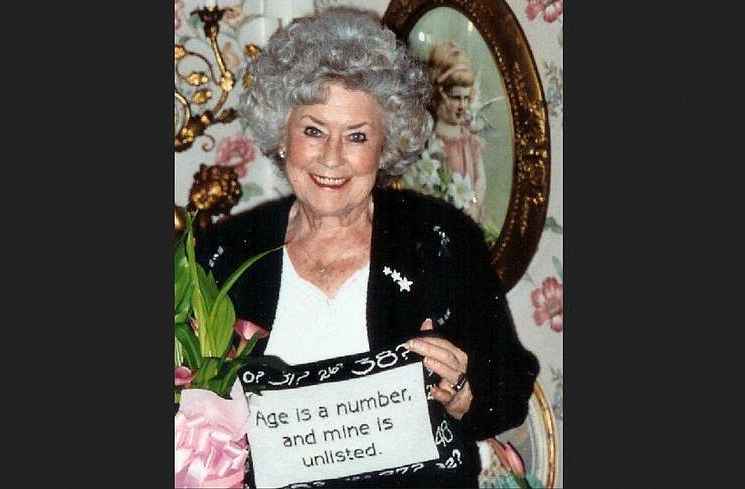






See listing of Recent and Most Popular articles on the Home Page
Health & Wellness
Category: Health & Wellness / Topics: Choices and Decision Making • Food & Nuitrition • Knowledge • Lifestyle, General • Spirituality, Seeking God • Wellness
Peak Wellness
Posted: July 3, 2020
Avoid the nonsense… here's what actually works…
Editor's note: Seniors can be easy targets for products and advice aimed at assuring better health. They often sound more potent than just following the basics. Here is an excerpt from an article by Brad Stulberg that showed up in the Poclet feature of my Firefox browster this morning. It was orginally published on Outside in August 2019. A link to the full article appears at the end of this summary.
In Silicon Valley, techies are swooning over tarot-card readers. In New York, you can hook up to a “detox” IV at a lounge. In the Midwest, the Neurocore Brain Performance Center markets brain training for everything from ADHD, anxiety, and depression to migraines, stress, autism-spectrum disorder, athletic performance, memory, and cognition. And online, companies like Goop promote “8 Crystals For Better Energy” and a detox-delivery meal kit, complete with “nutritional supplements, probiotics, detox and beauty tinctures, and beauty and detox teas.” Across the country, everyone is looking for a cure for what ails them, which has led to a booming billion-dollar industry—what I’ve come to call the Wellness Industrial Complex.
The problem is that so much of what’s sold in the name of modern-day wellness has little to no evidence of working. Which doesn’t mean that wellness isn’t a real thing. According to decades of research, wellness is a lifestyle or state of being that goes beyond merely the absence of disease and into the realm of maximizing human potential. Once someone’s basic needs are met (e.g., food and shelter), scientists say that wellness emerges from nourishing six dimensions of your health: physical, emotional, cognitive, social, spiritual, and environmental. According to research published in 1997 in The American Journal of Health Promotion, these dimensions are closely intertwined. Evidence suggests that they work together to create a sum that is greater than its parts.
Nourishing these interrelated dimensions of health, however, does not require that you buy any lotions, potions, or pills. Wellness—the kind that actually works—is simple: it’s about committing to basic practices, day in and day out, as individuals and communities.
Unfortunately, these basics tend to get overlooked in favor of easy-to-market nonsense. That’s because, as many marketers (including in the self-help space) are fond of saying, “You can’t sell the basics.” I think that’s naive. We’d be much better off if we stopped obsessing over hacks and instead focused on evidence-based stuff that works. Here’s how to get started.
Here are the six key tips. Follow the link at the bottom to read Stulberg;s full explanation of each one:
PHYSICAL: Move your body and don't eat crap--but don't diet either.
Decades of research shows that just 30 minutes of moderate to intense daily physical activity lowers your risk for heart disease, Alzheimer’s, mental illness, and many types of cancer. While this can certainly mean training for a marathon or setting CrossFit records, it doesn’t have to. Hiking, gardening, and even fast-paced walking can potentially provide all the same benefits. Basically, anything that makes your breathing labored for a sustained period does the trick.
EMOTIONAL: Don't hide your feelings, get help when you need it
Another big issue with what passes for modern-day wellness is that it creates the impression that everyone is happy all the time and that you should be, too. But like selective sharing on social media, this is not the reality of being human.
SOCIAL: It's not all about productivity; relationships matter, too
The roots of a redwood tree only run six to twelve feet deep. Instead of growing downward, they grow out, extending hundreds of feet laterally and wrapping themselves around the roots of other trees. When rough weather comes, it’s the network of closely intertwined roots that allows the trees to stand strong. We are the same.
COGNITIVE: Follow your intererest, do deep-focused work
“Find your passion” is one of the most popular self-help phrases, but it’s quite misleading and sometimes even harmful. Researchers call this a fit mindset of passion, or the belief that you’ll find an activity or pursuit about which you are immediately passionate from the get-go. Although over 75 percent of people hold this mindset, it rarely leads to lasting passion. People with fit mindsets tend to overemphasize their initial feelings, search for perfection, and quit when the going gets tough. Better than a fit mindset is a development mindset, in which you understand that passion takes time to emerge, thus lowering the bar for further engagement in something from “this is perfect” to “this is interesting.” Studies show that those who have development mindsets are more likely to end up with sustainable and energizing passions.
SPIRITUAL: Cultivate purpose, be open to awe
Organized religion is on the decline in America, especially for younger people. The 2018 American Family Survey, conducted by Deseret News in Utah, found that “for millennials and GenXers, the most common religion is no religion at all.” This may not be problematic in itself, but for centuries, religion served as a driving purpose for many people. When nothing fills this vacuum, the effect can be a negative one. A study published earlier this year in JAMA Network Open found that people without a strong life purpose—defined as a sense of feeling rooted in your life and taking actions toward meaningful goals—were more than twice as likely to die between the years of the study (2006 to 2010) compared with people who had one, even after controlling for things like gender, race, wealth, and education level. Speaking to NPR, Celeste Leigh Pearce, one of the authors of the study, said, “I approached this [study] with a very skeptical eye, [but] I just find it so convincing that I’m developing a whole research program around it.” Alan Rozanski, a cardiology professor at the Icahn School of Medicine at Mount Sinai, in New York City, says that purpose is “the deepest driver of well-being there is.”
ENVIRONMENTAL: Care for your space
Our surroundings shape us in so many ways. Yet we’re rarely intentional about them.
Read the full article.
Search all articles by Brad Stulberg
Posted: July 3, 2020 Accessed 228 times
![]() Go to the list of most recent Health & Wellness Articles
Go to the list of most recent Health & Wellness Articles
![]() Search Health & Wellness (You can expand the search to the entire site)
Search Health & Wellness (You can expand the search to the entire site)
![]() Go to the list of Most Recent and Most Popular Articles across the site (Home Page)
Go to the list of Most Recent and Most Popular Articles across the site (Home Page)
 Loading requested view...
Loading requested view...
